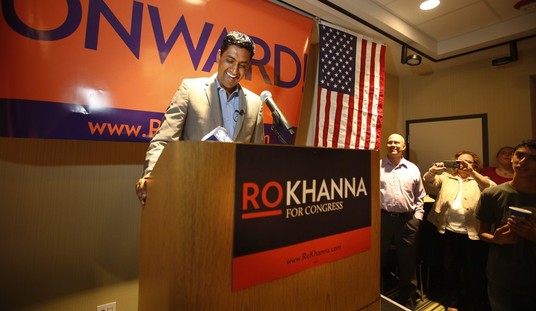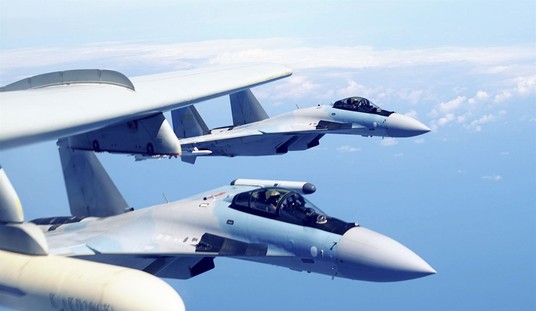As NBC notes, this is “unusually harsh criticism” from one ally about another, but it’s also long overdue. The flight of 6,000 regular Iraqi Army forces from defensive positions in Ramadi in the face of just 150 terrorists makes Defense Secretary Ashton Carter’s questions about the Iraqi “will to fight” the heart of the problem with the Obama administration’s entire strategy to “degrade and destroy” ISIS. The only degradation taking place is in the Iraqi military, which has been obvious for more than a year:
ISIS militants raised their black flag over the central Iraqi city last Sunday, sparking questions about the effectiveness of efforts by the U.S. and Iraq to fight the terror group. Defense Secretary Ash Carter on Sunday blamed the fall partially on Iraq forces’ “will to fight.”
“They were not outnumbered. In fact, they vastly outnumbered the opposing force, and yet they failed to fight, they withdrew from the site, and that says to me, and I think to most of us, that we have an issue with the will of the Iraqis to fight ISIL (ISIS) and defend themselves,” Carter told CNN’s Barbara Starr in an interview that aired on Sunday’s “State of the Union.”
Carter said the U.S. and coalition forces could provide Iraqi soldiers with all the training and equipment they need, but they can’t be given the willingness to fight ISIS, which is integral in driving out the militants.
“We can’t make this happen by ourselves, but we can assist it to happen, and we are counting on the Iraqi people to come behind a multi-sectarian government in Baghdad,” Carter said.
This is not a breaking-news revelation. The Iraqi army collapsed in Mosul more than a year ago in a similar manner, allowing the rapid advance through Nineveh to the edge of the Kurdish autonomous zone and all the way to a few miles outside Baghdad. Ever since then, the White House strategy has relied on a strong Iraqi army that simply stopped existing shortly after we pulled our troops out in 2011. That move allowed Nouri al-Maliki to purge the Sunnis and Kurds from the officer corps and turn the army into a spoils system.
The air strikes from the US and its Sunni coalition partners have been effective to the extent that air strikes can be, but air strikes don’t take ground, and they certainly don’t hold ground. At this point, though, the other options available look very unpalatable. McCaffrey’s right that adding a few thousand American troops back in the theater wouldn’t suffice; that would depend on a strong Iraqi military, too. We’d need to go back into Iraq as an occupying force and break ISIS completely, all the way into Syria and Raqqa as well, and then start over from scratch at rebuilding the Iraqi army. Even if that was a good idea, this President will never do it. Unfortunately, none of the other Sunni nations appear ready to do it either, which means the “degrade and destroy” rhetoric is just an empty threat.
The humiliation of Carter’s remarks has the Iraqis pledging to retake Ramadi, and they claimed to have regained some ground in preliminary operations. The rest of Ramadi will be liberated “in days,” Iraqi PM Haider al-Abadi pledged:
An 8,000-strong force of Iraqi forces, bolstered by Shiite militias and Sunni tribesmen, were amassed east of the city in the town of Khalidiya and were awaiting orders to launch “a major offensive,” the official said, speaking on condition of anonymity.
“Yesterday Prime Minister Haider Al-Abadi stated that the operation to liberate Ramadi will start soon, and the city is going to be liberated within days,” the official said.
That’s only 2,000 more troops that the force that got chased out of Ramadi in the first place. The Shi’ite militias will have a much higher morale, but that’s a problem too — they’re bent on fighting the centuries-old war between Sunni and Shi’ite extremists. The other Sunni tribes in the region won’t rally to Baghdad for that kind of “liberation,” and their use of Shi’ite irregulars will stay in memory for decades, if not centuries. In any case, it’s much more difficult to retake a city than it is to defend it in the first place, so don’t hold your breath waiting for the black flags to tumble off the rooftops of government buildings in Ramadi. And don’t hold your breath waiting for a coherent and effective counter-ISIS strategy for at least the next couple of years, either.







Join the conversation as a VIP Member